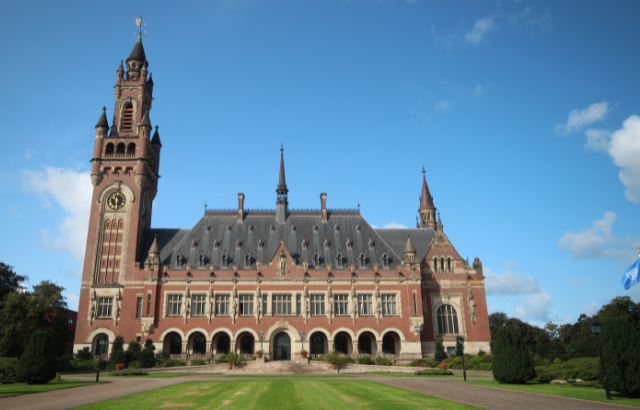COP27: Queen Mary experts leave their mark
Eight representatives from Queen Mary University of London attended the United Nations Climate Conference (COP27) in Egypt, helping to advance the implementation of effective climate change policies.

COP27, held from 6 to 18 November, saw around 90 world leaders, ministers, and negotiators, along with climate activists, mayors, civil society representatives and CEOs seek to accelerate global climate action through emissions reduction, scaled-up adaptation efforts and enhanced flows of appropriate finance. Queen Mary was one of only a small number of UK universities awarded passes to the Blue Zone, the point at which a badge is required to enter, at COP27.
Queen Mary’s COP27 representatives included the following academics, with some writing insightful and engaging blogs about their experience and impressions of this global event:
- Franziska Arnold-Dwyer, Lecturer in Insurance Law and Deputy Director of the Insurance, Shipping & Aviation Law Institute at the Centre for Commercial Law Studies.
- Fernando Barrio, Senior Lecturer in Business Law and Director of International Engagement for the School of Business and Management. His blog Tackling the climate crisis beyond COP asserts that outputs and results are far from what the world expects and what the planet needs.
- Professor Chris Griffiths, Professor of Primary Care, Wolfson Institute of Population Health. His blog Reflections on COP27 talks about COP27 as a catalyst for change and how the climate crisis won’t be solved by people working in silos, scattered across the globe.
- Professor Laleh Khalili, Professor of International Politics. Her blog The Many Contradictions and Unspoken Issues of COP27 examines the myriad politics of the conference.
- Teidor Lyngdoh, Lecturer (Assistant Professor) in Marketing, School of Business and Management. His blog On the ground at COP27: Championing Indigenous Peoples looks at COP27’s unique opportunity to discuss the issues of scaling Indigenous and regenerative agriculture practices and food systems around the world.
- Thiago Jesus, Head of Indigenous Exchange and Climate Action at People’s Palace Projects (PPP).
- Dr Heather McMullen, a social scientist in the Global Public Health Unit at the Centre for Public Health and Policy.
- Professor Kostya Trachenko, Deputy Head of School of Physical and Chemical Sciences Centre for Condensed Matter Physics (CCMP), Professor of Physics, Director of Graduate Studies.
These delegates represented a range of different schools and each of the three faculties, importantly showcasing the variety of specialisms from Queen Mary given the multidisciplinary approach needed to solve climate challenges.
All delegates represented their vast array of research and built valuable connections with stakeholders and academic peers. In doing so, and lending their diverse expertise, our researchers were able to not only help shape better climate and energy practices, but also develop collaborations with those seeking to influence policy at an international level. The connections made with industry and their peers will also enable them to develop their own research interests.
The first week of Queen Mary delegates was led by Dr Fernando Barrio. He spoke on a panel addressing ‘The African imperatives of resilient water-energy-food systems under a changing climate’ and also met with the Eswatini Climate Coalition, a grassroots collective promoting awareness, action and civic engagement around climate change in Eswatini.
Dr Heather McMullen, a speaker at COP26, led Queen Mary’s week 2 delegates and built on her work into sexual and reproductive health and rights and its intersection with climate change and environmental sustainability. She leads on a partnership agreement between Queen Mary and the United Nations Population Fund. This year, with colleagues, she has analysed 111 climate policies and presented the findings to a global audience at COP27.
Like Dr Barrio and Dr McMullen, People’s Palace Projects (PPP) developed their work from COP26 and enhanced the University’s reputation and visibility. Their work included ensuring indigenous communities are at the heart of climate action and discussion, as well as getting young people around the UK involved in climate change issues. PPP was led by Thiago Jesus, the Head of Indigenous Exchange and Climate Action. Outside of COP27, he is currently researching how arts organisations are engaging environmental issues with their programmes and with their artists, partners, audiences, and diverse communities.
Related items

11 December 2024

